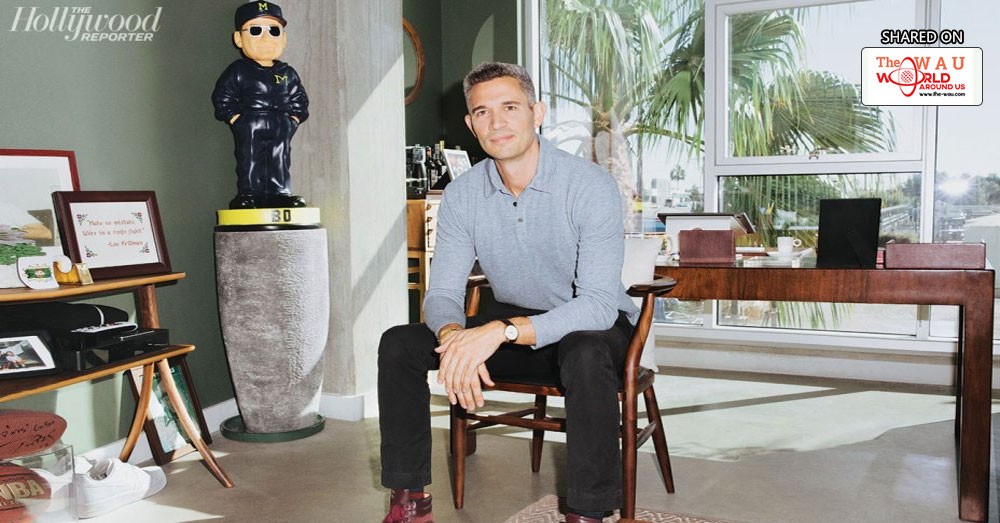Mike Farah discusses the evolution of digital content, partnering with AMC and charting an independent path: "I don't like to chase. If you are handling your shit, then the path emerges."
When Mike Farah was promoted to be Funny or Die's CEO in 2016, he sought to refocus on its roots of making funny videos — not chasing an acquisition deal with a major media conglomerate. His first order of business was to cut nearly 40 employees and close its Silicon Valley outpost, where engineers had been dreaming up new app ideas. Soon after, Farah, 38, who previously had been president of production, signed an investment deal with AMC Networks.
Under Farah's leadership, the 110-employee private company founded in 2007 by Will Ferrell, Adam McKay and Chris Henchy is making more comedy than ever before. American Vandal (Netflix) and Brockmire (IFC) both have been renewed for second seasons; Sarah Silverman's I Love You, America is in its first season on Hulu; cop comedy No Activity premiered Nov. 12 on CBS All Access; and Billy on the Street was nominated for an Emmy in September before ending its run on TruTV.
Meanwhile, the company continues to churn out 30 digital videos per month, recently striking a deal with Amazon to produce original shortform series. "I'm definitely further removed from the creative process," laments the Indiana University grad, who was heavily involved in Funny or Die's video campaign to help promote Obamacare. "But now I feel like I get to produce the whole company."
How has digital video changed since Funny or Die launched?
When we started, there was only one way to make money. You'd make stuff, hope you have an audience and then an ad sales team would come in and leverage that audience. Now there are so many different paths to monetization. There are all these different platforms and buyers who are looking for different things. We have to be the best solution for as many of those people as possible.

What was the reason for the layoffs you conducted in 2016?
Ultimately, we had gotten too big. We were too spread out. We had gotten away from our core product. There were some good ideas from the app strategy, but it was a business that didn’t play to our strengths. I felt like we had taken our eyes off the target. We had to downsize to be able to really zone in on what makes us different and then put all of our efforts toward that.
Funny or Die actively explored a sale in 2014. Is the company now committed to staying independent?
When you're out there chasing an exit, it takes up so much time, and it's so distracting. I don't like to chase. If you are handling your shit, then the path emerges. We had to get back to basics and run a great fucking company. Because we are still independent, we get to have all these different things going on with Amazon, IFC and CBS.
How has the AMC investment benefitted Funny or Die?
...[ Continue to next page ]
Share This Post















